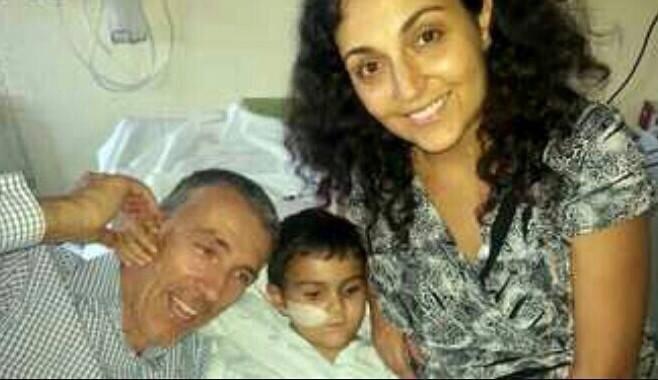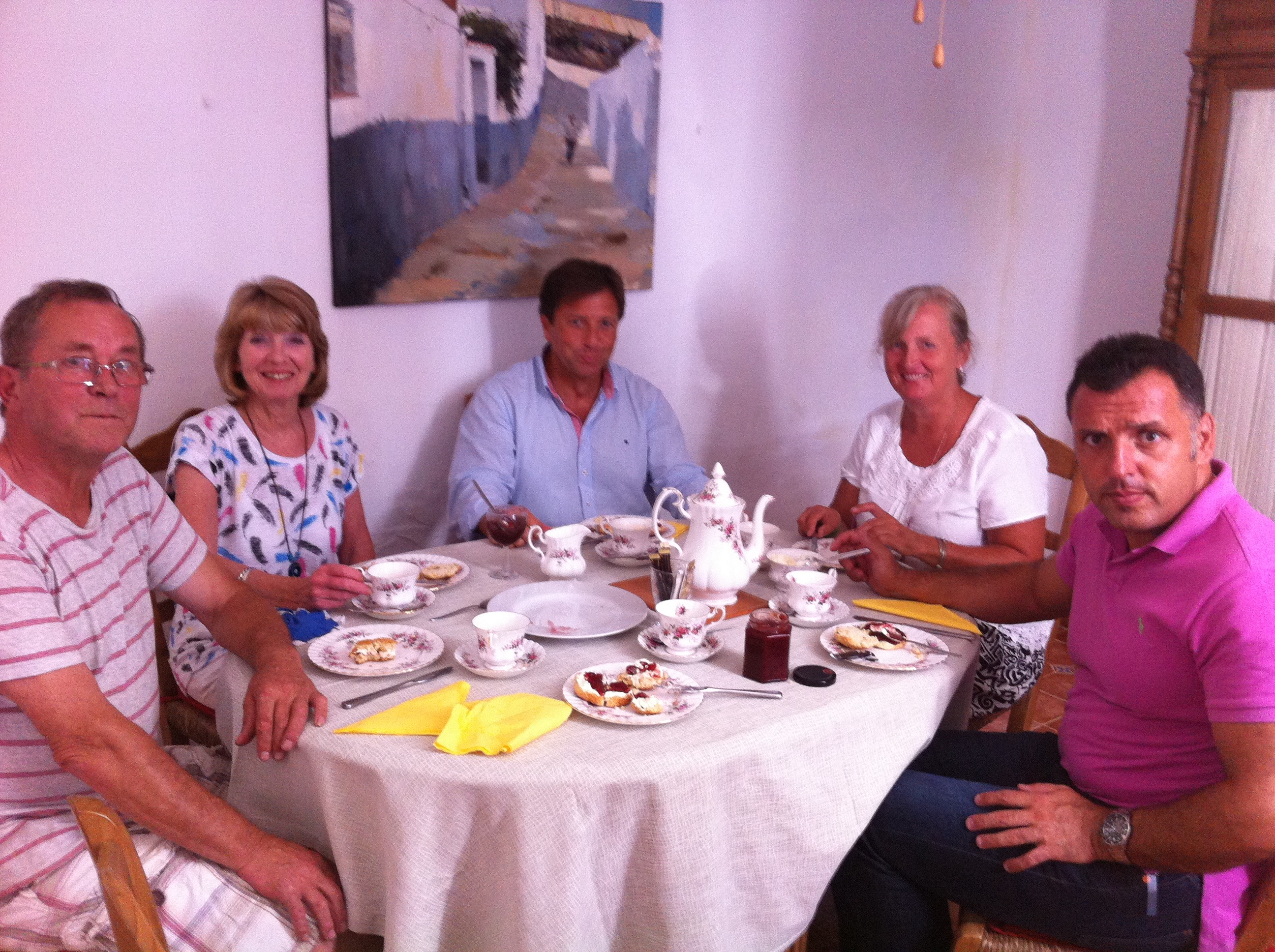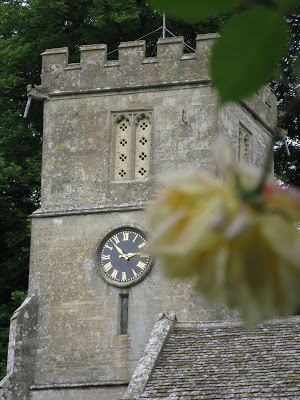So why did it become so interesting, the Ashya King story? The little boy with cancer, whose parents were arrested in Spain after a European Arrest Warrant was issued? Human interest, of course, and the added interest that the family was found in the Axarquía region.
My Spanish friends were largely uninterested in the story. Noticing on Facebook that I was following it closely, they asked me why. I didn't have an answer. Is it really simply because it was a British family? If I dig down deep, and ask myself if I would have been as interested if it were an Australian family or an Estonian family, would I really have followed it as it developed hour by hour? The uncomfortable truth is that probably I wouldn't have.
Nobody I know knew the family. I have never been to Southampton Hospital (from where his parents took him). Although a good friend lives nearby, I have never been to the small Axarquía village where the family checked into a hostel, only to be recognised and picked up by the Spanish police. Yet I followed it avidly on Sky News and Facebook, engaged in arguments about it, and signed an online petition.
 It would be easy to decide that the key point that triggered my interest was them being found in the Axarquía. But I believe that the truth is simply that they are a British family. And on Facebook groups and other internet forums British people gathered to discuss the constantly-developing news, up to the lovely moment when the parents, released by a Spanish judge, arrived at the hospital in Málaga finally to be reunited with their 5-year old son.
It would be easy to decide that the key point that triggered my interest was them being found in the Axarquía. But I believe that the truth is simply that they are a British family. And on Facebook groups and other internet forums British people gathered to discuss the constantly-developing news, up to the lovely moment when the parents, released by a Spanish judge, arrived at the hospital in Málaga finally to be reunited with their 5-year old son.
So what was it it? Was it patriotism? Hoping for the best for a fellow Brit? Was it righteous anger at British institutions, that anger that only we Brits can express with such passion? Was it some deep and forgotten Britishness that clawed its way to the surface to stand shoulder to shoulder with a British family in need?
The week before, I'd been helping two Spanish friends prepare for their English exams, by organising an English "immersion" week. David's work takes him abroad a great deal, including almost a year in Bosnia. I asked him what he missed most about Spain when he was over there. He waved his hands and rattled off "the usual things" such as his family, the sea, the football and the sunshine. Then he thought seriously. "Truly?" he said .... "What I missed most, out of everything that Spain means to me, is the long lunch-time." He wasn't being flippant. Every afternoon his thoughts turned to Spain and he knew that people were closing their shops, leaving their offices, and going to spend a comfortable two or three hours chin-wagging over some beers and some tapas, relaxing, and forgetting about day-to-day problems or the economic crisis. The long lunch summed up, for him, the lifestyle he missed when abroad.
It doesn't really matter what it is. But it seems to me that regardless of where we are, a little part inside us will be forever England. When it does pop up, it surprises me. I couldn't be less of a flag-waving patriot in the usual sense. I'm not a monarchist.  I'm generally against wars and empires. Maybe distance brings it out more strongly. A friend and I read some English poetry at a "Proper English Tea Party" I organised during David and Jose's English immersion week, and hearing that most English of lines "Yet stands the church clock at ten to three? And is there honey still for tea?" read in an impeccable English accent, twisted something in my stomach (I don't think it was the cucumber sandwiches) and I felt a dampness behind the eyes.
I'm generally against wars and empires. Maybe distance brings it out more strongly. A friend and I read some English poetry at a "Proper English Tea Party" I organised during David and Jose's English immersion week, and hearing that most English of lines "Yet stands the church clock at ten to three? And is there honey still for tea?" read in an impeccable English accent, twisted something in my stomach (I don't think it was the cucumber sandwiches) and I felt a dampness behind the eyes.
 Right now it feels dangerous to think about patriotism or nationalism. It smacks of "Britain First", UKIP and the other far-right groupings. But like it or not, it seems that the plight of an unknown family who just happened to be born on the same tiny island group as me, triggered something that cannot be buried completely however European I feel and however much I support ideas of One World and one human race. For David, in an unimaginably uncomfortable situation in Bosnia, his mind wandered to the bars of Málaga and people taking their time over their lunch. And for me, what keeps me rooted is the knowledge that thanks to Rupert Brooke the church clock will always stand at ten to three, and yes, there IS honey, still, for tea.
Right now it feels dangerous to think about patriotism or nationalism. It smacks of "Britain First", UKIP and the other far-right groupings. But like it or not, it seems that the plight of an unknown family who just happened to be born on the same tiny island group as me, triggered something that cannot be buried completely however European I feel and however much I support ideas of One World and one human race. For David, in an unimaginably uncomfortable situation in Bosnia, his mind wandered to the bars of Málaga and people taking their time over their lunch. And for me, what keeps me rooted is the knowledge that thanks to Rupert Brooke the church clock will always stand at ten to three, and yes, there IS honey, still, for tea.
© Tamara Essex 2014 www.twocampos.com
THIS WEEK'S LANGUAGE POINT:
Subtle differences in past conditionals -
Si hubieran escuchado la radio esta mañana, sabrían que podría llover esta tarde, ¿verdad? - If they had listened to the radio this morning, they would know that it may rain this afternoon, wouldn’t they?
This SEEMS to me to be more commonly-used in Spain. Though more natural to me (translating from English instead of thinking directly in Spanish) would be to say:
Si hubieran escuchado la radio esta mañana, habrían sabido que podría llover esta tarde, ¿verdad? - If they had listened to the radio this morning, they would have known that it may rain this afternoon, wouldn’t they?